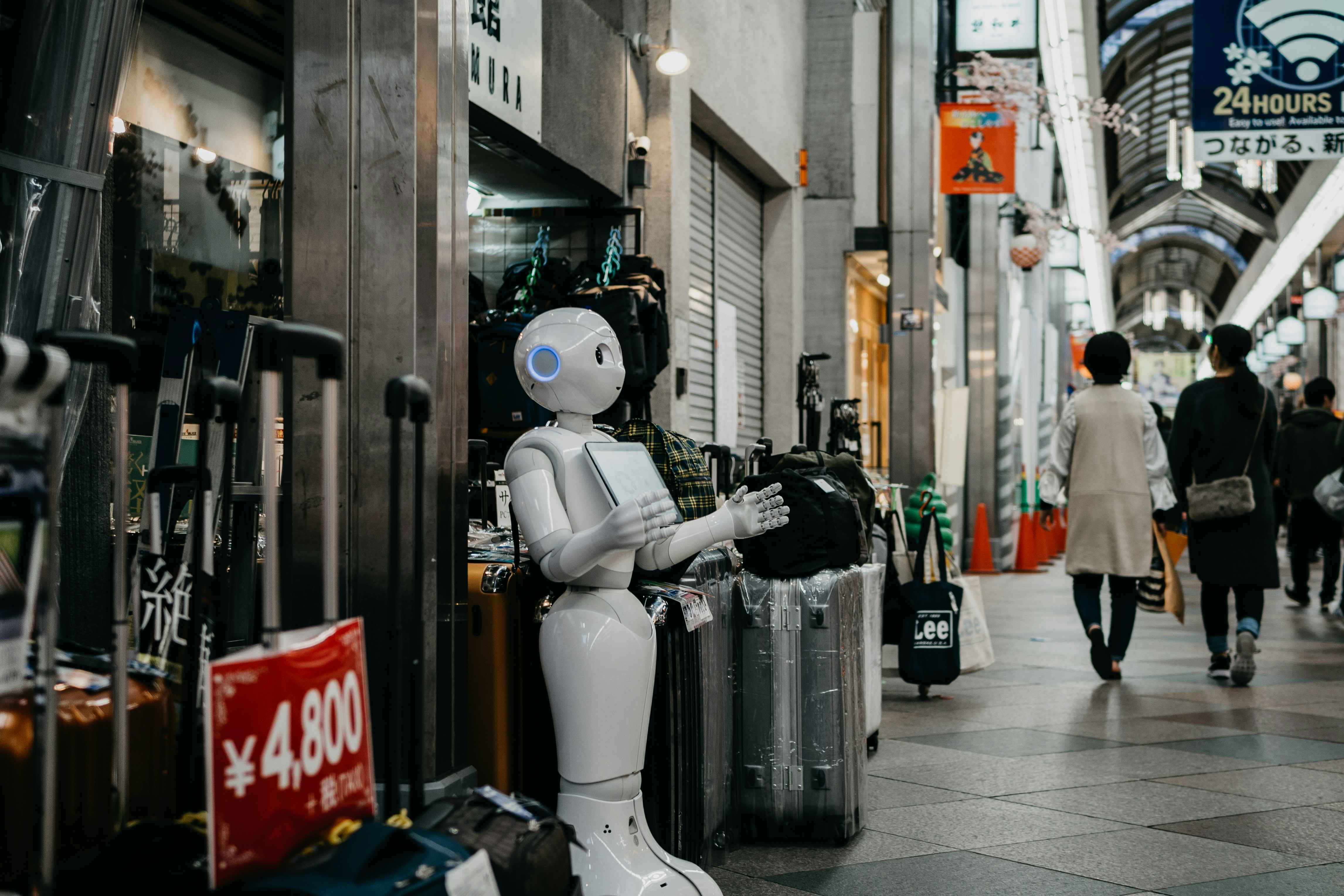The Role of Artificial Intelligence in Mental Health: A Breakthrough or a Buzzword?

Mental health issues have long been a silent crisis, affecting millions of people worldwide, yet remaining under-addressed due to stigma, lack of resources, and limited access to care. As technology continues to evolve, one of the most promising innovations in the field of mental health is the use of artificial intelligence (AI). From helping diagnose conditions to providing personalized therapy, AI is poised to revolutionize how we approach mental health. But with this potential comes skepticism and questions: Is AI truly a breakthrough in mental health care, or is it just a buzzword promising more than it can deliver?
In this blog, we’ll explore the various ways AI is being used to address mental health challenges, the benefits it brings, and the limitations it faces. We will also examine whether AI can truly provide a solution to the global mental health crisis or whether it remains a futuristic concept with limited real-world applications.
1. AI in Mental Health Diagnosis: A More Accurate and Accessible Approach
One of the most significant ways AI is transforming mental health care is through its potential in improving diagnosis. Traditionally, diagnosing mental health disorders such as depression, anxiety, or schizophrenia relies heavily on the expertise of mental health professionals. However, human error, biases, and subjective interpretations often influence these diagnoses.
AI, however, can assist in creating a more objective and accurate diagnostic process. Machine learning models can analyze vast amounts of data—such as patient records, therapy session notes, and even social media posts—to identify patterns and predict the likelihood of a person developing certain mental health conditions. By using algorithms trained on large datasets, AI can detect early signs of mental health disorders, sometimes even before symptoms are visible, offering the possibility of earlier intervention and better long-term outcomes.
For example, AI-driven tools like chatbots or digital mental health apps can assess speech patterns, behavior, and emotional responses to detect the early stages of depression or anxiety. Studies have shown that AI models can identify mental health conditions with a level of accuracy comparable to human clinicians. This could revolutionize the way mental health professionals screen and diagnose patients, making mental health care more efficient and accessible to everyone, regardless of their location.
2. AI in Personalized Mental Health Care: Therapy Tailored to the Individual
AI is also making strides in providing personalized care to patients. Traditional therapy often relies on face-to-face interactions between therapists and patients, which may not always be effective for everyone. For individuals who struggle with accessing professional help due to geographical limitations, financial constraints, or social anxiety, AI offers an alternative in the form of virtual mental health assistants.
AI-powered therapy apps like Woebot, Replika, and Wysa use natural language processing (NLP) and machine learning to engage users in therapeutic conversations. These virtual assistants are designed to interact with users in real-time, offering cognitive-behavioral therapy (CBT) techniques, mindfulness exercises, and emotional support. Over time, the AI learns the user’s preferences and emotional patterns, adapting its responses to offer a personalized and customized therapeutic experience.
The major advantage of these AI-driven solutions is that they are available 24/7, meaning users can access support whenever they need it. This is especially important in moments of crisis or when traditional therapy is not immediately accessible. Moreover, AI allows users to express themselves without fear of judgment or stigma, making it an appealing option for individuals who might otherwise feel uncomfortable seeking help.
3. AI in Mental Health Monitoring: Real-Time Insights and Intervention
Mental health conditions often fluctuate, with symptoms varying day by day or even hour by hour. For individuals managing conditions like bipolar disorder or anxiety, this unpredictability can be a significant challenge. AI can provide real-time monitoring and insights into a person’s emotional and psychological state, helping both individuals and healthcare providers track changes over time.
For instance, AI-powered apps that track users’ moods, sleep patterns, physical activity, and even social interactions can provide valuable insights into how daily behaviors impact mental health. These apps use machine learning to analyze data and offer personalized recommendations, such as suggesting mindfulness exercises or alerting the user when it’s time to reach out to a healthcare provider for additional support. This continuous monitoring allows for more proactive mental health care, where interventions can occur before a person’s symptoms escalate.
Some wearable devices, such as smartwatches, are already incorporating AI to track biometrics like heart rate and stress levels. These devices can notify the wearer when their stress levels are spiking or when they may need to take a break, offering a more integrated approach to managing mental health on a day-to-day basis.
4. The Benefits of AI in Mental Health: Efficiency, Accessibility, and Affordability
One of the most compelling arguments in favor of AI’s role in mental health is its potential to increase efficiency, accessibility, and affordability. Mental health professionals are often in short supply, and long wait times for therapy or psychiatric appointments can deter individuals from seeking help. By offering AI-driven solutions, more people can access timely and affordable support.
Additionally, AI can be a tool that complements existing mental health services, helping to reduce clinician burnout by automating administrative tasks or supporting diagnostic processes. AI can also assist therapists in analyzing patient data more efficiently, allowing them to focus on providing more personalized, high-quality care.
For those in remote areas or those with limited access to mental health services, AI-powered solutions offer a way to reach individuals who otherwise might not receive help. Through digital platforms, individuals can access support in the comfort of their own homes, overcoming geographical and social barriers to care.
5. The Challenges and Limitations of AI in Mental Health
Despite the significant potential of AI in mental health, there are challenges and limitations that must be considered. First and foremost, AI lacks the empathy and nuanced understanding that human clinicians bring to the table. While AI can simulate conversations and offer support, it cannot replace the human connection and expertise that come with working with a trained therapist or counselor.
Additionally, there are concerns about data privacy and security. Mental health data is highly sensitive, and AI solutions require access to vast amounts of personal information. The protection of this data is critical to ensure that individuals’ privacy is not compromised. Without proper safeguards, there could be risks associated with using AI for mental health care, including the misuse of personal data or exposure to cyber threats.
Another challenge lies in the diversity of mental health experiences. AI systems are only as effective as the data they are trained on. If the training data is not representative of diverse populations—whether in terms of ethnicity, gender, or socioeconomic status—the AI might struggle to provide accurate and fair recommendations, potentially exacerbating health disparities.
6. Is AI a Breakthrough or Just a Buzzword?
AI’s role in mental health care is undeniably transformative, but whether it represents a true breakthrough or merely a buzzword depends on how it’s implemented and integrated into existing systems. As AI continues to evolve and more research is conducted, we may see significant advancements that allow it to serve as a valuable complement to traditional mental health care.
While AI cannot replace human therapists, it can play an essential role in making mental health care more accessible, personalized, and scalable. The key will be balancing the strengths of AI with the human touch that is necessary for providing effective mental health care.
Conclusion
AI in mental health has the potential to revolutionize the way we approach and address mental health challenges. By improving diagnosis, providing personalized therapy, and offering continuous monitoring, AI can fill critical gaps in mental health care, especially for those who may not have access to traditional services. However, its limitations must be recognized, and it should be viewed as a tool to complement, not replace, human clinicians. As technology continues to advance, AI’s role in mental health will likely become more integrated into the care landscape, offering new possibilities for treatment, prevention, and support. Ultimately, AI could be a key player in the ongoing battle to address the global mental health crisis.
Asif Bc
Aspiring blogger in Kerala sharing insights on technology and mental health to inspire mindful living.



.jpg)
0 Comments